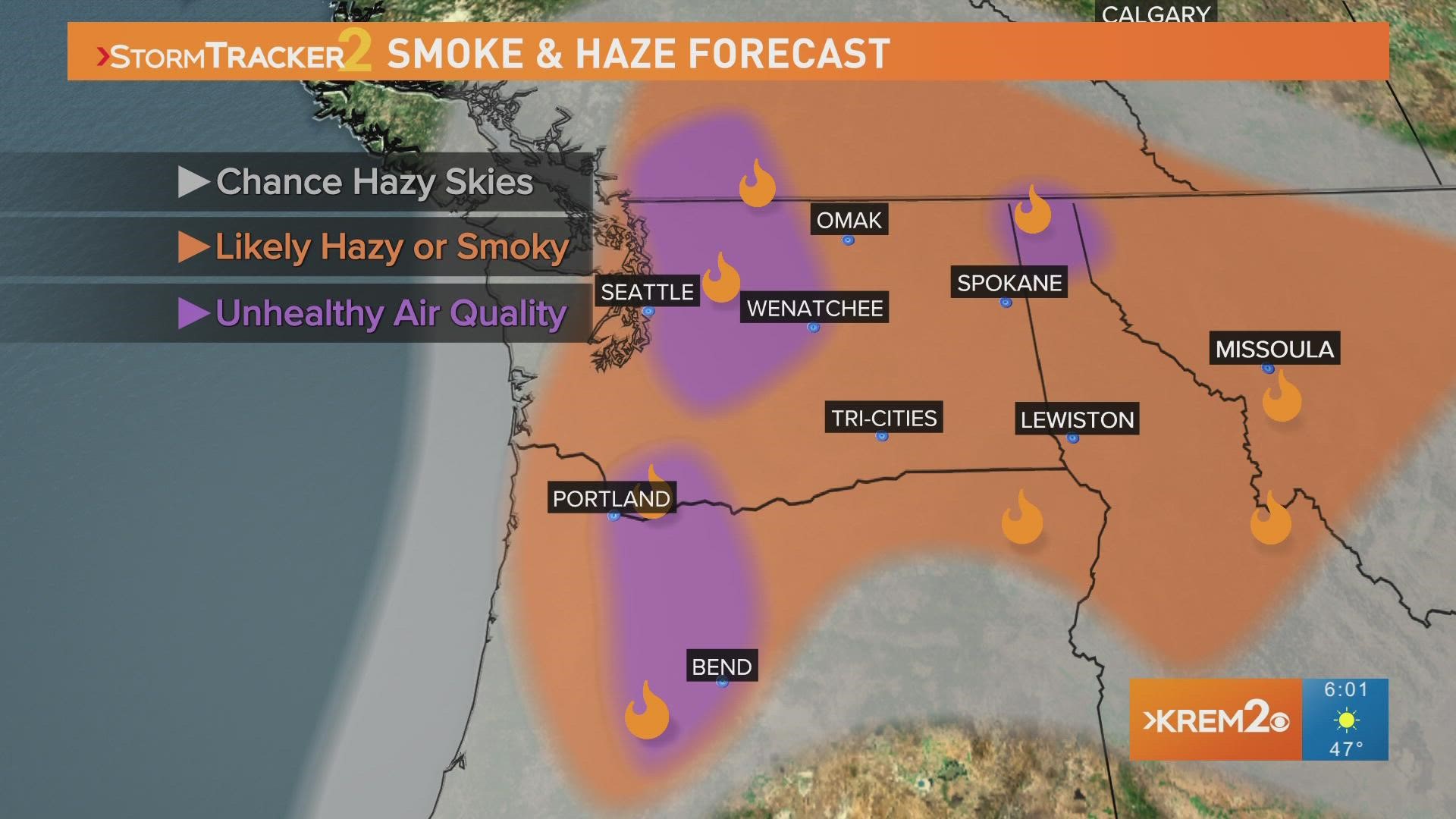SPOKANE, Wash. — Smoke and haze is blanketing eastern Washington and north Idaho on Wednesday, leading to air quality concerns in some areas.
The air quality started worsening yesterday but will be far more noticeable on Wednesday and Thursday. The smoke and haze will cover all of Spokane and the Inland Northwest.
As of Wednesday morning, air quality in Spokane fell between moderate and unhealthy for sensitive groups, according to AirNow.
North of Spokane, specifically in far north Idaho, air quality is considered unhealthy for all. Bonners Ferry, ID reporting an AQI of 172 as of 6:00 a.m.
The smoke is coming from several wildfires still burning in the northwest, including the Kootenai River Complex Fire which has burned more than 24,000 acres since the fires started in August in Boundary County, Idaho.
The poor air quality is expected to continue through Thursday. A major October storm moves in on Friday. It should clear the air, but the powerful cold front will also bring wind, rain, and mountain snow.
Unhealthy air quality
Here are the precautions recommended when the air quality drops to unhealthy, from AirNow.gov:
People with heart or lung disease, older adults, children and teens – take any of these steps to reduce your exposure:
- Avoid strenuous outdoor activities.
- Keep outdoor activities short.
- Consider moving physical activities indoors or rescheduling them.
Everyone else – take any of these steps to reduce your exposure:
- Choose less strenuous activities (like walking instead of running) so you don’t breathe as hard.
- Shorten the amount of time you are active outdoors.
- Be active outdoors when air quality is better.
Unhealthy for sensitive groups
Here are the precautions recommended when the air quality drops to unhealthy for sensitive groups, from AirNow.gov:
People with heart or lung disease, older adults, children and teens – take any of these steps to reduce your exposure:
- Choose less strenuous activities (like walking instead of running) so you don’t breathe as hard.
- Shorten the amount of time you are active outdoors.
- Be active outdoors when air quality is better.
Everyone else: Enjoy your outdoor activities.

